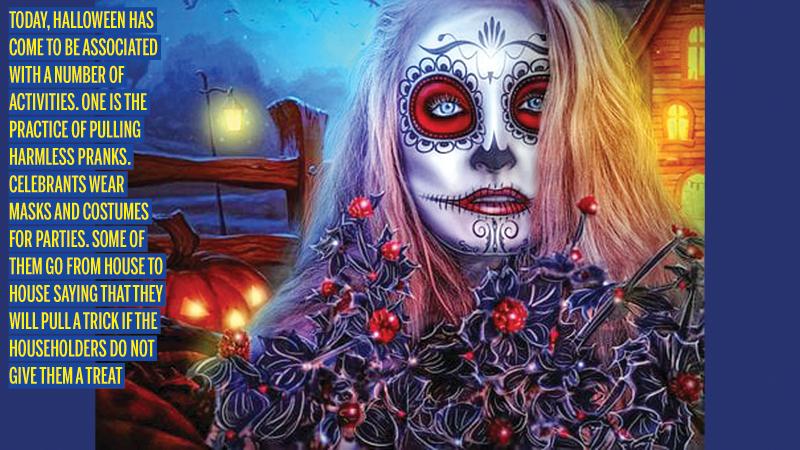
South Korea’s President Yoon Suk-yeol has declared a period of national mourning after a Halloween crush killed 153 people in a packed nightlife area in Seoul. The victims were mostly teenagers and people in their 20s. A Sri Lankan also died in the stampede.
Halloween is something new to Sri Lanka although it is celebrated in the city on a minor scale. In fact, the word Halloween was applied to the evening of October 31, preceding the Christian feast of Hallowmas, All hallows or All Saints’ Day. The observances connected with Halloween probably originated among the ancient Druids who believed that on the evening, Saman, the Lord of the Dead, called forth hosts of evil spirits. The Druids customarily lit great fires on the Halloween Day, apparently for the purpose of warding off all the spirits.
Celtic tradition
Among the ancient Celts, Halloween was the last evening of the year and was regarded as a propitious time for examining the portents of the future. The Celts also believed that the spirits of the dead used to revisit their earthly homes on that evening. After the Romans conquered Britain, they added to Halloween features of the Roman harvest festival held on November 1 in honour of Pomona, Goddess of the Fruits of Trees.
The Celtic tradition of lighting fires on Halloween survived until modern times in Scotland and Wales. The concept of ghosts and witches is still common to all Halloween observances. Traces of the Roman harvest festival still survive in the customs prevalent in both the United States and Britain. Some of them are playing games involving fruit, such as ducking for apples in a tub of water and the use of hollowed-out pumpkins carved to resemble grotesque faces and lit by candles placed inside.
In the 7th century CE, Pope Boniface IV established All Saints’ Day, originally on May 13 and in the following century, it was moved to November 1. The evening before All Saints’ Day became a holy, or hallowed, and thus came to be known as Halloween. By the end of the Middle Ages, the secular and the sacred days had merged. The Reformation put an end to the religious holiday among Protestants.
Secular day
In Britain, however, Halloween continued to be celebrated as a secular day. The celebration of Halloween was forbidden among the early American colonists. In the 1800s, there developed festivals that marked the harvest incorporating elements of Halloween.
Today, Halloween has come to be associated with a number of activities. One is the practice of pulling harmless pranks. Celebrants wear masks and costumes for parties. Some of them go from house to house saying that they will pull a trick if the householders do not give them a treat. On the other hand, Halloween parties include games such as bobbing for apples. Along with skeletons and black cats, the celebration has incorporated scary beings such as ghosts, witches and vampires.
It is a tragedy that a large number of people who were celebrating Halloween died in South Korea.
